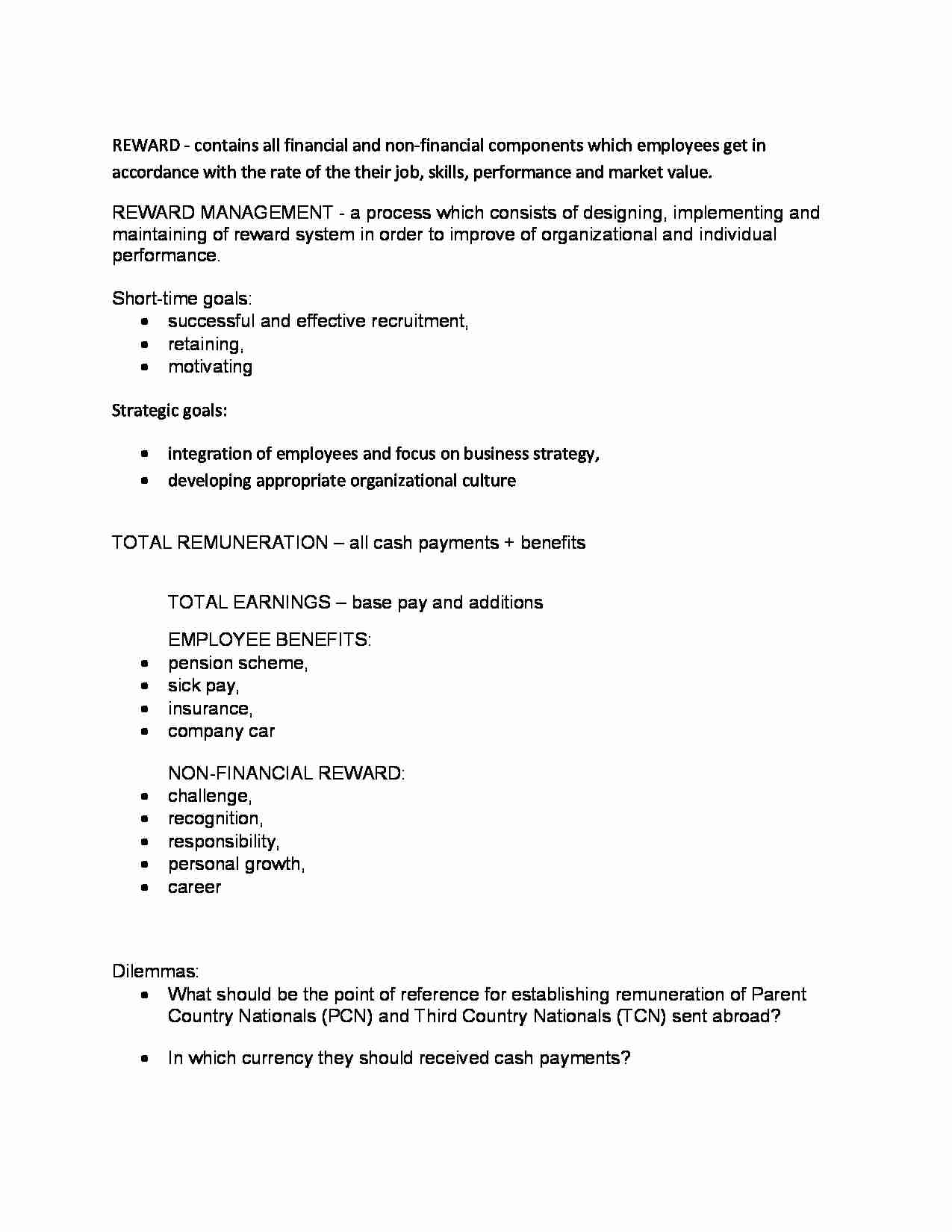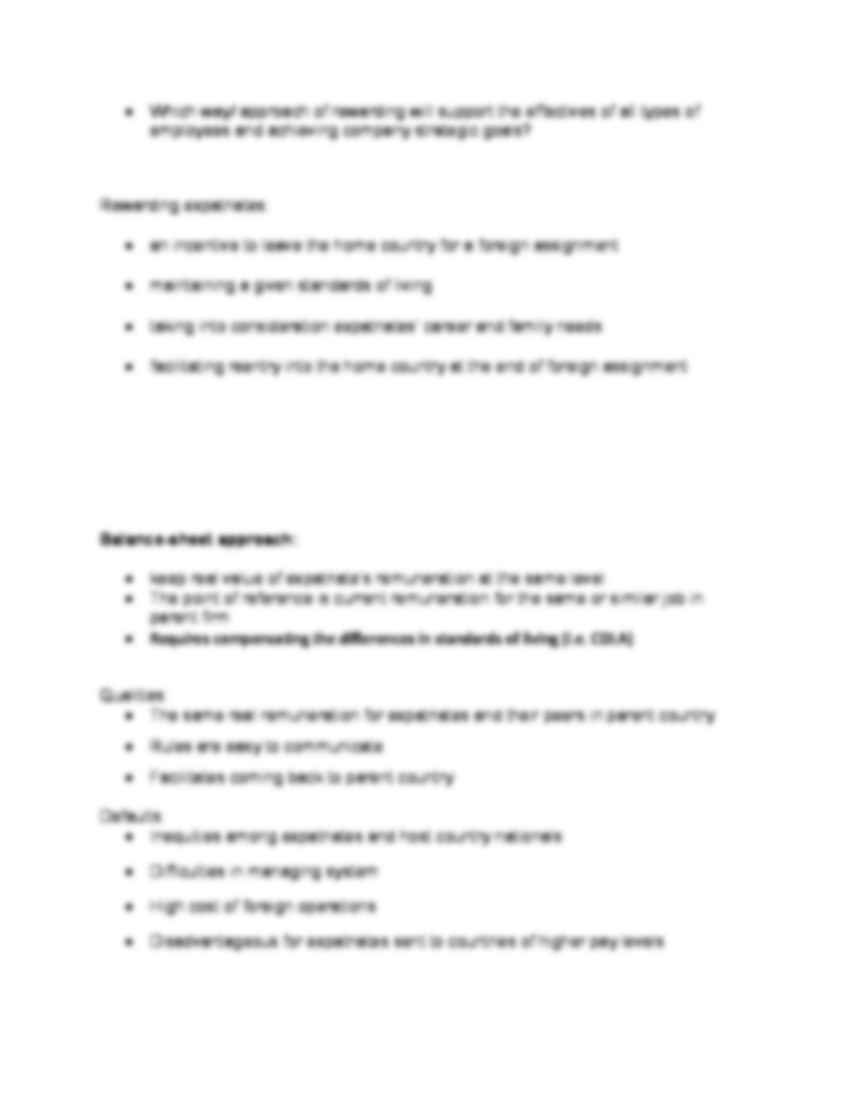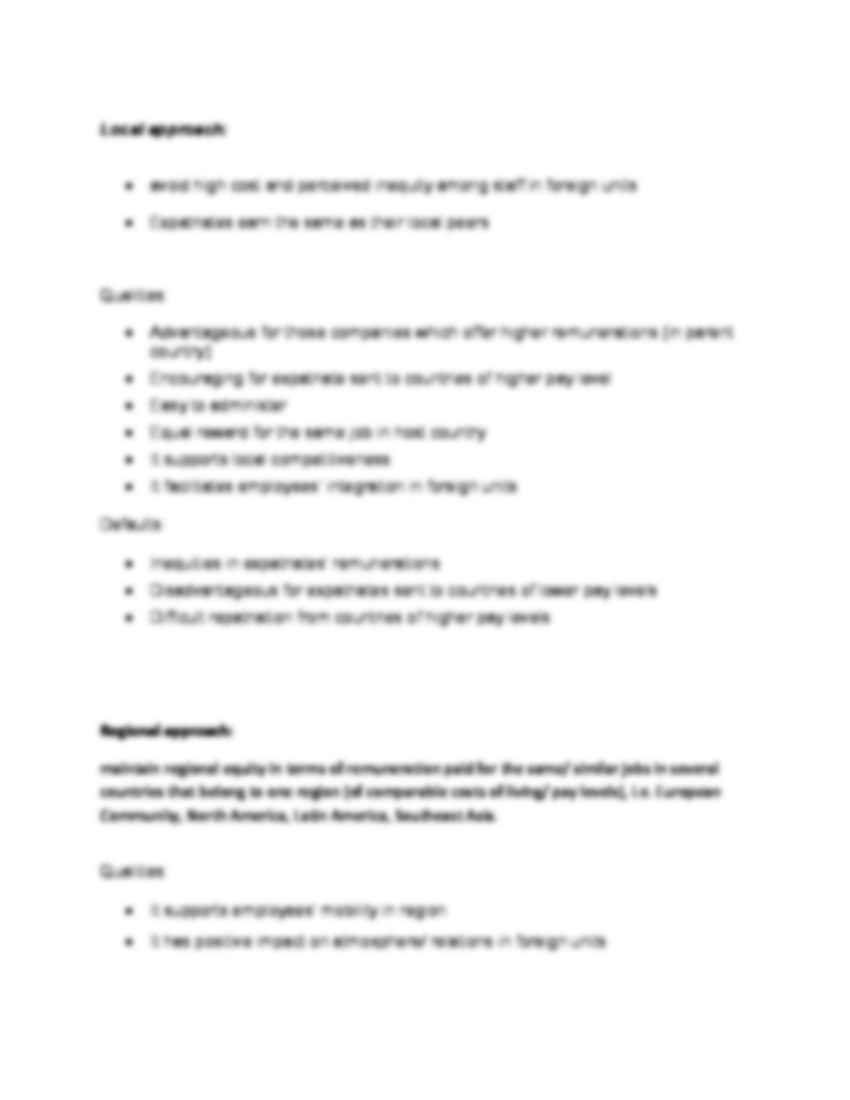To tylko jedna z 5 stron tej notatki. Zaloguj się aby zobaczyć ten dokument.
Zobacz
całą notatkę



REWARD - contains all financial and non-financial components which employees get in accordance with the rate of the their job, skills, performance and market value. REWARD MANAGEMENT - a process which consists of designing, implementing and maintaining of reward system in order to improve of organizational and individual performance. Short-time goals: successful and effective recruitment, retaining, motivating Strategic goals: integration of employees and focus on business strategy, developing appropriate organizational culture TOTAL REMUNERATION - all cash payments + benefits TOTAL EARNINGS - base pay and additions EMPLOYEE BENEFITS: pension scheme, sick pay, insurance, company car NON-FINANCIAL REWARD: challenge, recognition, responsibility, personal growth, career Dilemmas: What should be the point of reference for establishing remuneration of Parent Country Nationals (PCN) and Third Country Nationals (TCN) sent abroad? In which currency they should received cash payments? Which way/ approach of rewarding will support the effectives of all types of employees and achieving company strategic goals? Rewarding expatriates: an incentive to leave the home country for a foreign assignment maintaining a given standards of living taking into consideration expatriates' career and family needs facilitating reentry into the home country at the end of foreign assignment Balance-sheet approach: keep real value of expatriate's remuneration at the same level The point of reference is current remuneration for the same or similar job in parent firm Requires compensating the differences in standards of living (i.e. COLA) Qualities: The same real remuneration for expatriates and their peers in parent country Rules are easy to communicate Facilitates coming back to parent country Defaults: Inequities among expatriates and host country nationals Difficulties in managing system High cost of foreign operations Disadvantageous for expatriates sent to countries of higher pay levels Local approach: avoid high cost and perceived inequity among staff in foreign units
(…)
…, experienced expatriates (moved for their technical or managerial skills) - incentives, add-ons and adjustments are needed international cadre (moved from one foreign assignment to another) - global salary and benefits permanent expatriates (long-term foreign assignment) - need to be reclassifies as locals - local salary and benefits
Incentive components - to accept and enjoy the foreign posting: overseas…
…. European Community, North America, Latin America, Southeast Asia.
Qualities: It supports employees' mobility in region It has positive impact on atmosphere/ relations in foreign units Defaults: Difficult and expensive administrating Difficult to design (requires comparative analysis of work content in particular countries that belong to region) Difficult repatriation from regions of higher pay levels…
... zobacz całą notatkę






Komentarze użytkowników (0)